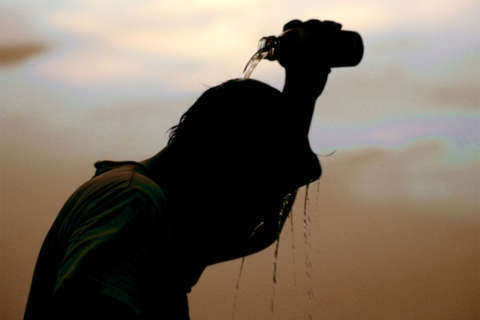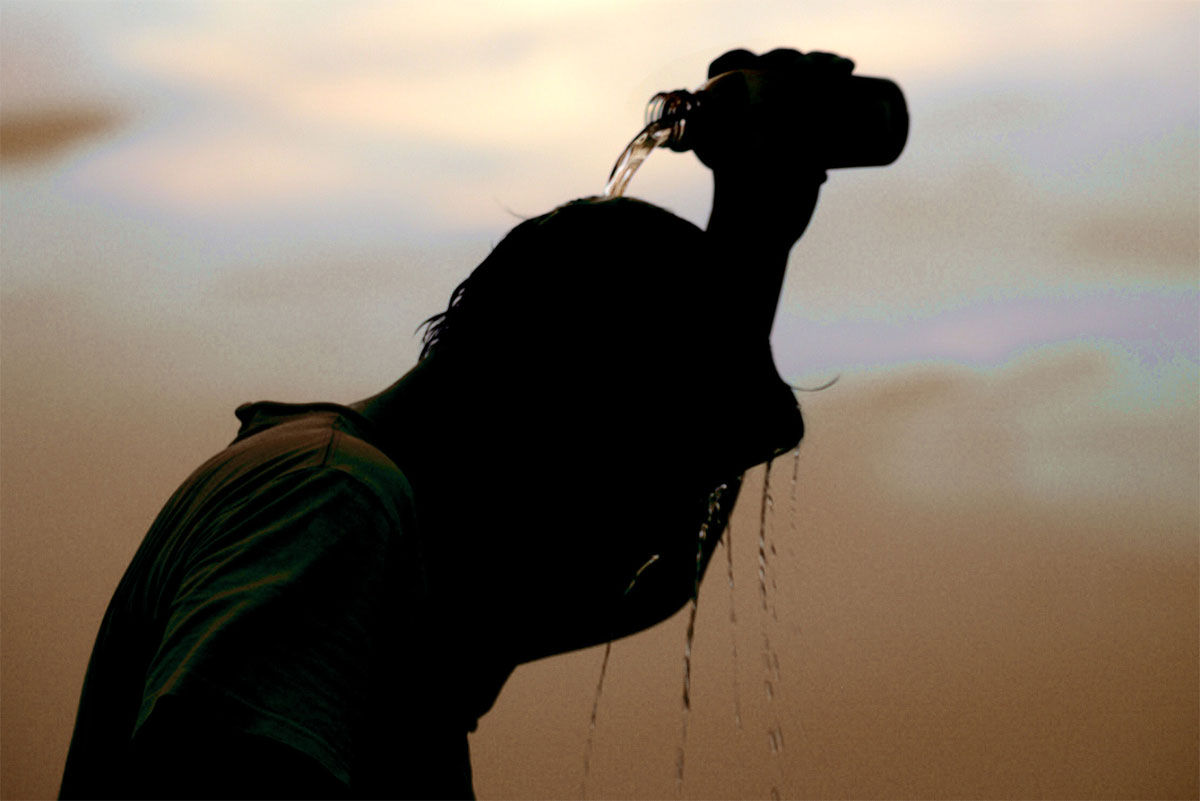
Potentially dangerous heat and humidity will blanket the D.C. area through Sunday, so the chair of a local emergency department has advice and warning signs for people exposed to extreme conditions.
Stay hydrated before, during and after being outside
“The hydration has to start a solid day or two ahead of time,” said Dr. Michael Silverman, chairman of the Department of Emergency Medicine at the Virginia Hospital Center.
“If you know you’re going to be out this weekend doing chores or at the fields with your kids, now is the time to start drinking — certainly more water, more clear liquids, more sports drinks. By later in the week, Thursday or Friday, it’s time to load up and get ahead,” he advised.
Silverman recommends adults who are active in extreme weather drink about 20 to 30 ounces of water an hour, and 10 to 20 ounces for children, ideally drinking a little every 10 or 20 minutes.
A good sign you’re properly hydrated is pale yellow urine. Darker shades suggest you’re dehydrated, and if you urinate less than usual, you’re definitely dehydrated, Silverman said.
Watch out for yourself and others
Warning signs a body has had enough can begin with pale or extremely red skin. If you’re cramping or feeling dizzy or light-headed, cool off and hydrate. More serious signs include confusion, altered mental status and passing out. Call 911 if you, or anyone, stops sweating.
Pay close attention to the elderly and youngsters, Silverman said; they may not be able to hydrate as well, and may not be able to communicate what their needs are, or how thirsty or hot they are. Using a cool, moist towel on kids who are playing outside can be helpful.
Avoid the heat if you can
To best cope with extreme heat and the sun, Silverman said, you should find a shady spot, put on a hat, use an umbrella, apply sunscreen and wear lightweight clothing. Better yet, stay inside if you can.
Silverman warned, “15 or 20 minutes outside may be enough, or even too much in this case,” and he stressed that you need to use common sense.









